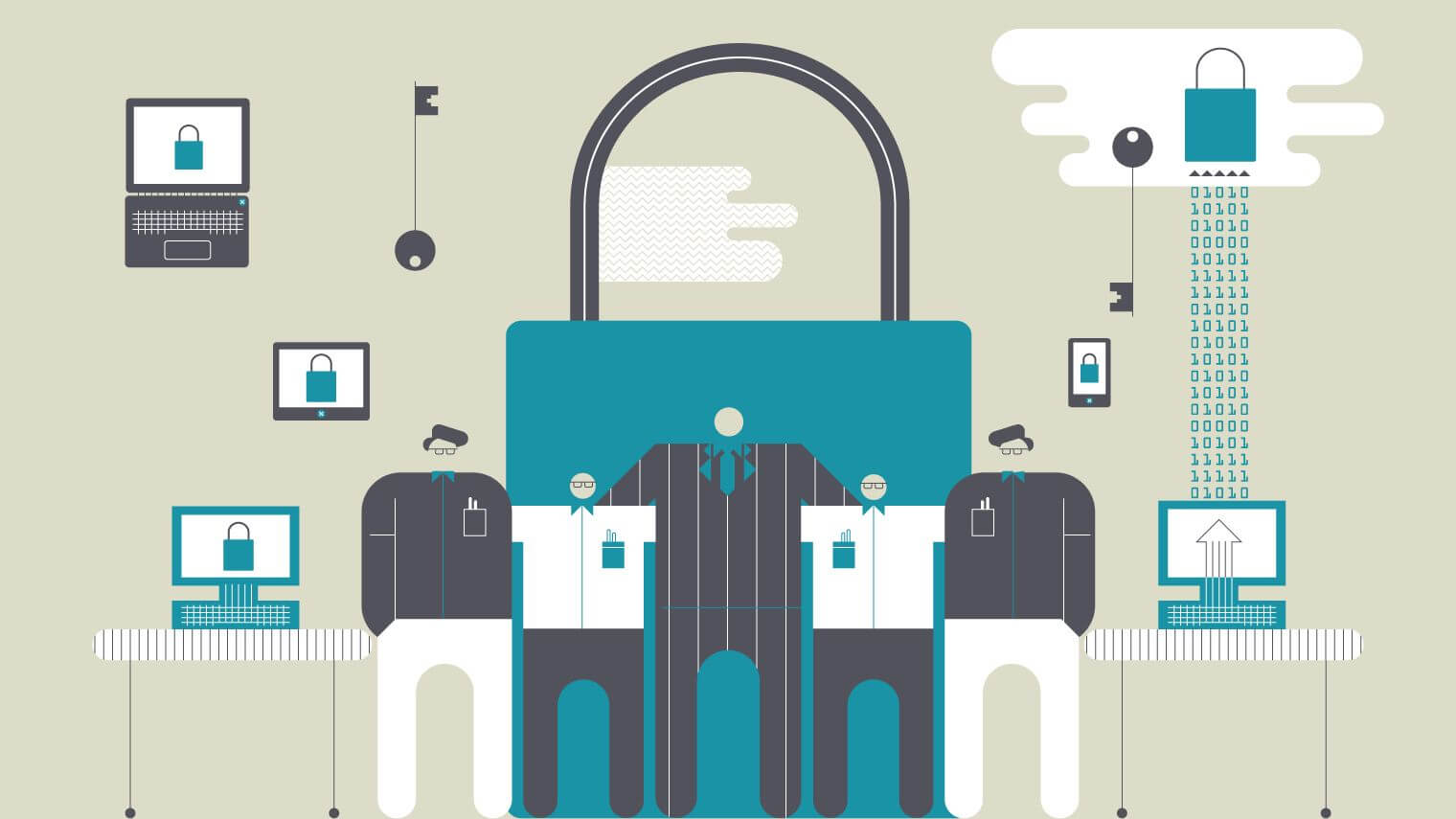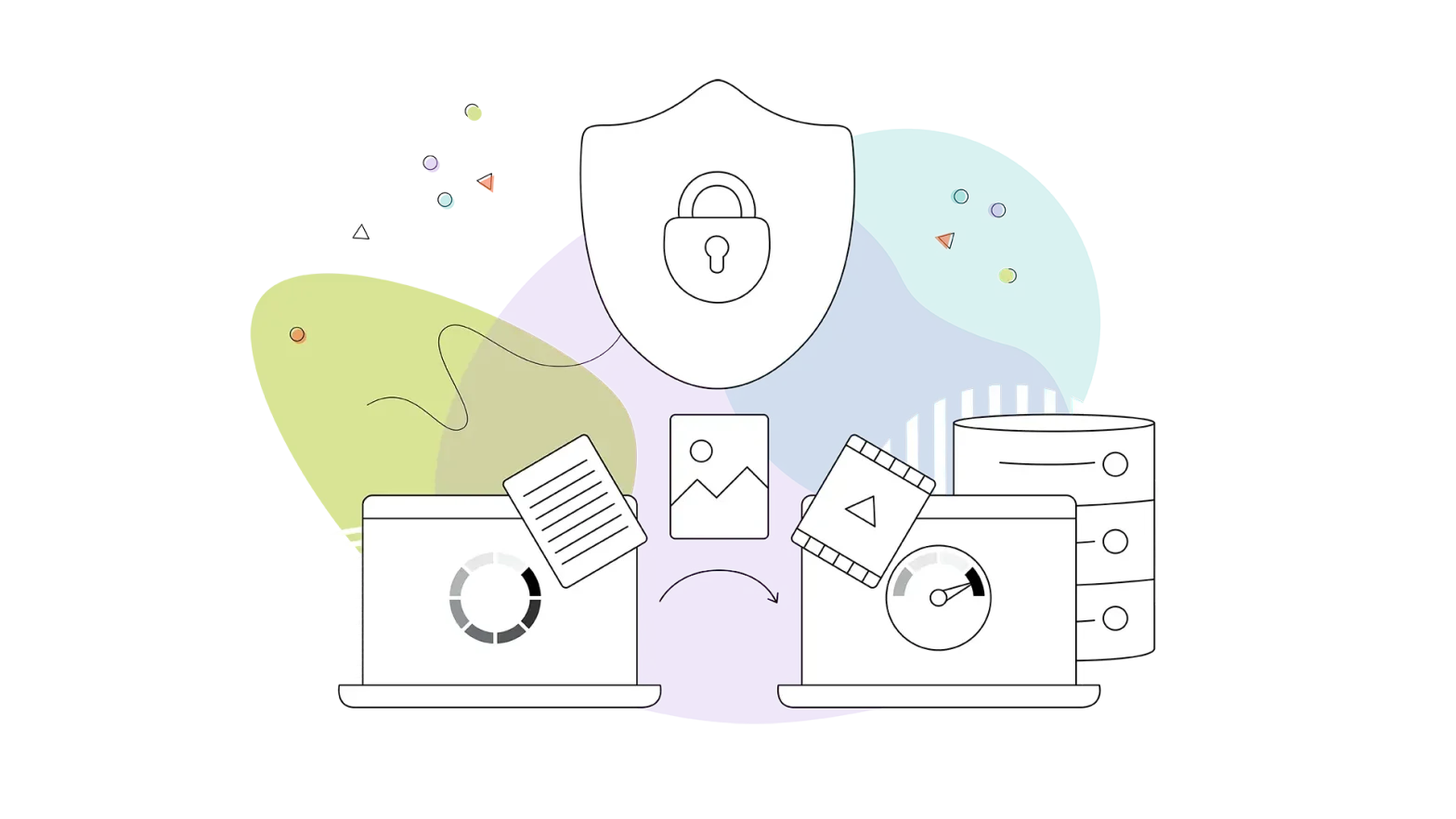Not everyone understands what hacking is, the role of a web server in website security, or the need for a web application firewall. It may seem exaggerated, like Hollywood blockbusters.
In reality, hacking and data breaches are usually a lot less dramatic, but they’re still dangerous and something business owners and web admins definitely want to avoid.
Throughout this article, we’ll cover exactly what malware is, how websites and computers get infected, and provide suggestions on how to protect yourself and your website from possible attacks. That’s because a proactive approach to cyber attacks is the best strategy for success.
Let’s get started!
- What Is Malware?
- How Does Malware Get Into a Website?
- Data Theft & Search Engine Blocking
- How to Prevent Malware
What Is Malware?
Just the word malware sounds scary, and that’s because it can seriously negatively affect your website.
Malware is an abbreviation of the term “malicious software,” its definition is exactly how it sounds: software designed to damage or gain access to a computer or website without the owner knowing.
Many different types of malware can attack your own website’s server or computer, each type designed to accomplish different goals. Here are a few malware types to get a more rounded idea:
- Spyware: It’s used to steal sensitive information like passwords and email accounts.
- Adware: It’s used to display forced advertising on your machine.
- Ransomware: Used for blackmail, locking your files with powerful encryption
- Zombie computer scripts: These are used to send spam emails or be a part of a larger network (bot network).
- Trojan horses: Used for deleting, stealing, modifying, or copying data.
And the list goes on. The list of affected systems doesn’t just include big banks and government websites.
In fact, reports prove that more than 50% of website ransomware attacks hit companies with 100 employees or less. A good reputation is critical for small businesses and new websites. If potential visitors and customers find out that your website may have malware, they will quickly take their business elsewhere.
How Does Malware Get Into a Website?
Hackers are always looking for critical vulnerabilities in any network to perform a data breach and install their malware. One big thing that website owners have to be aware of is out-of-date plugins. Outdated code can pose significant security issues and threats as it may be vulnerable to exploitation.
Applications constantly update their code and programming to ensure the apps are safe. It’s up to the users of these applications to keep them up-to-date. Hackers can use these applications with outdated code to infiltrate a website and install malware.
But out-of-date applications aren’t the only concern for website owners. Installing free software programs can have hidden malware buried in the code that can surface only after you’ve installed the software.
File sharing can also be an issue, mainly because not every computer that has shared the file has the Internet security that you may have. It just takes one weak link to infect a file that is being shared.

For websites, malware can come in the form of malicious plugins or premium themes downloaded free of charge from unsafe sources. Hackers can insert malicious code into themes and plugins, compromising your website’s security.
Website owners also need to be aware of social engineering and scareware. Some hackers like to create messages that persuade users to install the malware themselves. This can be as simple as a download asking you to turn off your antivirus.
Scareware is a tactic that frightens people into believing that a virus has infected them and tells the user to download “Internet protection” or similar software, which is malware in disguise.
We’re not trying to scare you away from having your own websites.
They are powerful tools that help your business get a leg up on the competition, reach new customers, and improve your brand recognition. You must be aware of potentially threatening scenarios to get the most out of the experience.
Data Theft & Search Engine Blocking
Malware can result in the theft of not only your data but all of your customers’ data.
No customer will want to use your services if they discover their information isn’t safe. Customers will quickly find a safer solution for their needs if you don’t act fast to rid your website of any traces of malware.
One of the scariest scenarios a business can run into online is being blocklisted by search engines. When a website gets blocklisted, it won’t appear in any relevant searches and is basically wiped from the face of the Internet.
Search engines will blocklist a site if it’s found to have malware. Protecting critical data and removing malware are signs of a secure website.
How to Prevent Malware
How does someone protect themselves and their website against the most common security threats? There will always be online threats, but there are plenty of ways to protect yourself and your customers from big, bad hackers.
One of the easiest yet most important tips is getting your computer’s antivirus software.
This will protect you from most if not all, downloads that you do on the Internet. Choose a company you know you can trust, like Norton or Kaspersky, and avoid suspicious download links.
Create a separate user account on your operating system for website work to enhance security.
For the website itself, keep all of your third-party applications up-to-date. WordPress and Joomla-based sites are constantly getting updated, so ensure your website does, too. Also, encourage your customers to use strong passwords if there are forms or signups on your website.
A weak password can give a hacker easy access to install malware. Strong passwords should include numbers, special characters, and capital and lowercase letters. There are plenty of free password generators on the Internet, like https://passwordsgenerator.net/, that can help you create robust passwords with helpful tips to remember them.
Google Chrome also suggests powerful passwords if you’re in a hurry, but as always, keep those passwords saved in an encrypted vault or password manager for maximum safety.
Securing Your Web Server Environment
While web server security is mainly a work conveyed by your trusty web host, it’s important to understand a few key factors that play a significant role in your overall website safety.
Your web host gives you access to a few valuable tools through their dashboard. For example, you can choose the PHP version your web server runs at and set up your web application firewall (WAF) to your liking.
Web application firewalls are put into place as a way to monitor incoming and outgoing traffic from and to your site. As Cloudflare clearly explains, a WAF works with a set of rules or policies that can allow or disallow a request made by hackers and malicious code online.
A WAF is usually one of the security tools used by web hosting providers and can significantly safeguard your site against common security threats. Others include a complete security suite like HostPapa’s Protection Power, which, for a reasonably low price, consists of a malware scanner, an automatic vulnerability scanner, automatic malware detection and a proactive monitor.
SSL Certificates are another way to keep your website well-protected. Ever wonder what that green lock beside a web address is? That is an SSL certificate.
This security feature establishes an encrypted link between the web server and your customers and ensures that all communications are fully protected. If your website requires clients to input credit card information or personal or sensitive data anywhere, an SSL is critical to encrypt that information and keep it safe from hackers.
HostPapa offers an SSL certificate with every account, and you can purchase additional certificates, like a Wildcard SSL certificate, from your account dashboard.
There’s also the investment in automatic backups. HostPapa offers an automated backup solution for easy website restoration with just a few clicks.
Conclusion
To succeed in today’s business world, it’s necessary to maintain an online presence, but it’s equally important to be protected from online threats.
Web security should always be maintained if you want a site that’s running like a well-oiled machine. It’s important to protect our sensitive information and login credentials and avoid visiting any potentially harmful websites.
eCommerce websites must also take security measures to protect sensitive data from customers and their business reputation. Adding extra security services to your web hosting takes a proactive approach to prevent a potentially major security incident.
Check out what security options HostPapa has for you, and check out HostPapa’s innovative web hosting solutions for small businesses and individuals!
Discover more awe-inspiring topics like this by visiting our HostPapa Blog.




